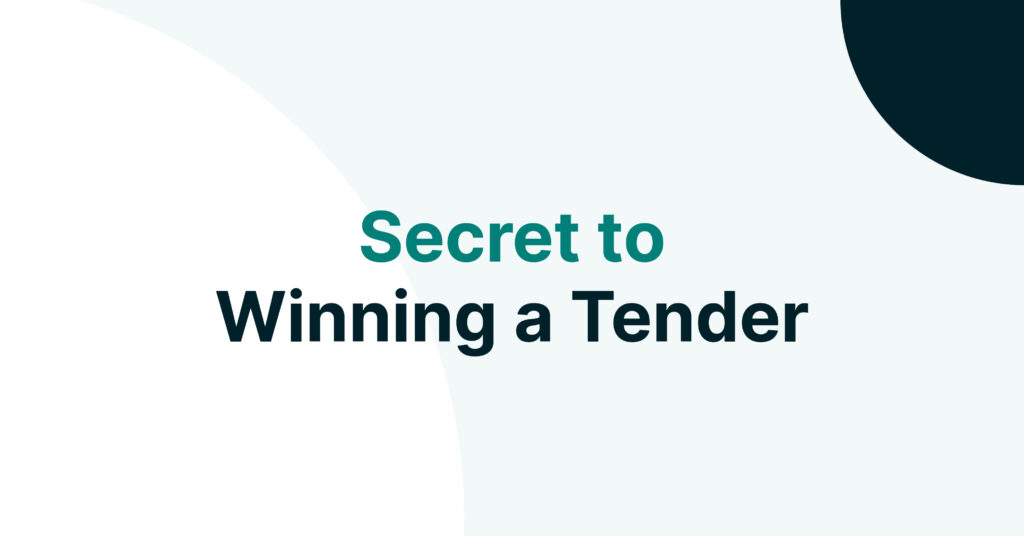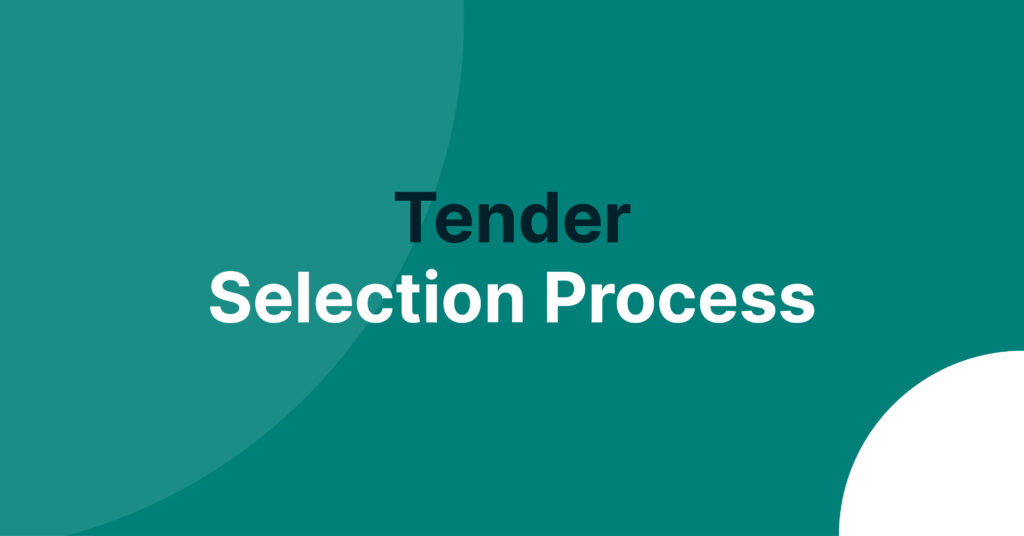Sit down with real Bid Writers
Ever wanted to sit down with real Bid Writers to discuss tender proposal templates? You can at Tender VLE
Are you looking for tender proposal templates? There’s no one better to help you write a winning tender proposal than real Bid Writers. At Tender VLE, we understand the tendering process can appear complicated to those unfamiliar with it. We aim to teach people more about tendering and how beneficial it can be for businesses. Our Bid Writers also know, more than anyone, exactly what tendering is all about. So, there is no one better to teach you than experienced Bid Writers.
Below, you will some of our most frequently asked questions. We sat down with our Bid Writers to uncover the answers.
What are tenders?
If you are not familiar with what tenders are, they’re simply an invitation for suppliers to bid for a project. Tenders are usually published by public sector institutions. They invite bids from suppliers to provide the required work. They are simply a way of securing a contract.
What are Bid Writers?
Before we talk about tender response templates, let’s talk about what Bid Writers actually are, for those who aren’t familiar. Bid Writers are the specialist writers that write tender responses for their clients. Bid Writers communicate with clients so they can understand their business and what they can offer the buyer. As well as the meticulous details of how the client (supplier) plans to conduct their work if they are successful.
Bid Writers are required to have excellent writing and communication skills. This is to work with the client, but also to be applied to the tender documents. Bid Writers essentially sell the client to the buyer. So, they have to be able to communicate in detail why this supplier is best suited for the contract. Their work needs to be clear and concise, whilst ensuring the points are made and the question is answered.
They also need to be well organised and great with project management. This is because they work to strict deadlines. So, they must ensure work is done on time. This can be quite a lot of pressure to work under.
What are tender proposal templates?
A tender proposal template is an example of how to structure and present your tender response. Usually, in public sector tenders, the buyer will require a structured response. This usually takes the form of questions with boxes to write your responses.
However, not all tenders require this structured format. Some, depending on your industry, will allow a free-flowing proposal. This is where you can get more creative and show off your branding.
As every tender is different, following a template won’t always help you. The best thing to do is read the specification and ensure you following the guidelines.
How can tender proposal templates help suppliers?
Tender proposal templates can be helpful if you will be responding to multiple tenders. Creating a template that you can follow each time will allow you to be more reactive with your tender responses.
Need help creating a tender proposal template? Our team of Bid Writers can create a company branded, editable bid proposal/credentials document. This can then be used, where appropriate, in your future tender submissions. Contact our team for a free quote.
What documents are involved in the tendering process?
Now that you understand the pros and cons of a tender proposal template, let’s take a look at the process.
There are several different documents involved in tendering. You can become familiar with these by completing a tender training course. However, we will summarise what they are so you will understand what we are referring to later in the blog.
Pre-qualification questionnaire
So, the first stage of tendering is usually a pre-qualification questionnaire (PQQ). A PQQ is, as you probably guessed, a questionnaire for suppliers. This is the method that many contracting authorities use to gauge which suppliers are suitable for the contract. Think of it as a sieve. This filters out all the suppliers that are not able to provide the work. Then the organisation is left with a select few suppliers, which can then be invited to tender.
Invitation to tender (ITT)
An ITT invites the shortlisted suppliers to give their proposals. Often in the creative sector, buyers use requests for proposals (RFP)/requests for tenders (RFT). However, these are a lot more free-flowing and have less restrictions.
Tender proposal
Then there is the supplier’s proposal/response. This document is where the supplier outlines the products/services. As well as pricing and the time frame they can offer to complete the project. They are essentially a way of showcasing a supplier’s qualifications. But also, to provide details of pricing so the contractor can decide whether the supplier is suitable for the contract.
What should be considered when writing a tender proposal?
You should always make sure that you understand the ITT. Ensure you know exactly which documentation needs to be submitted. You should also familiarise yourself with the tender portal. This is so you understand all the submission requirements.
The best way to establish what the tender requires is to break it down. Review the ITT and write down all the points that need to be answered. Breaking it down means you won’t feel overwhelmed, and you will be able to stay on track. Some tenders can be 20 questions with a 1,000-word limit per question. So, it is important to know exactly what you need to say.
Being prepared to tender is an expert approach to the process. Diving right in without a clue can land you in hot water. Just like any situation, being prepared can be the difference between failure and success. So, preparation is key when writing tender proposals.
Boilerplate responses
Bid Writers often advise using boilerplate responses. These are basically templates for tender responses. They are in essence a form of a tender proposal template. And they save you time having to rewrite the same information over and over again. There are certain qualities that are necessary for boilerplate responses. Some of those are listed below.
- Short and to the point
- Easy to understand
- Interesting to read.
Having boilerplate responses is great because it saves time and resources that would be spent rewriting proposals. Be sure you are making them relevant to the current tender though. If you accidentally include information from a different tender, it could cost you the bid. Mainly because it shows that you do not check information/have an eye for detail.
Evidence
Always show evidence that you can provide the work and complete the contract. Show similar and relevant work you have done. This proves your credibility and buyers will know to take you seriously.
We hope you have found our blog informative and that our Bid Writers’ advice will be of use to you. We know finding tender proposal templates can be a task, but finding one that was successful is another. By educating yourself and researching as much as you can about tendering, you increase your understanding of the process. This means you will be able to spot and create quality tender proposals and other documents.
How we can help you
If you want to know more about the tendering process, then talk to our dedicated team today.
Join the discussion via our LinkedIn Forum
Want to learn more about tendering?
Tender VLE is the UK’s first virtual learning environment to offer free resources, dedicated to bid writing courses. Four of our course levels are still in development but you can start your learning journey at level one now. Our instructors offer five levels of training to accommodate all levels of learning. Tender VLE offers the resources to help you whether you are new to tendering or an expert, looking to improve. We have training that is suitable for various learners including businesses, freelancers or aspiring Bid Writers.
Need help with writing an imminent bid?
Hudson Succeed, our sister company, is a global provider of bid writing services. They have over 60 years of collective experience and an 87% success rate. Our team can support you with every step of the tendering process. Our services include:
Tender Ready
This 4-week programme is designed for companies that are completely new to the tendering process. One of our highly skilled Bid Writers will work with you to ensure that your business is ready to tender successfully.
Tender Improvement
Our Tender Improvement programme is designed for companies that have previous experience with tendering but are yet to see results. A member of our knowledgeable team will review your previous responses and aid you to improve them for future bids.
Our Tender Writing service is the whole package. Once we have the required information from you, our Bid Writing Team will do the rest. We’ll take charge of the entire tender for your business, all the way from writing through to submission.
Tender Mentor
This package is suitable for companies that have already written their own tender response. A member of our team will review your work before the submission deadline, checking for inconsistencies, spelling errors and grammar. They will also check your responses to ensure they meet the contract’s specifications.
Get in touch with a member of our expert Bid Writing Team and watch your business grow.
Upgrade to Discover Elite
Enhance your tendering process with Discover Elite. The package ensures that you can still identify tendering opportunities even when you’re busy. Forget pre-bid admin and time-consuming breakdowns, your Account Manager will take care of this for you.








